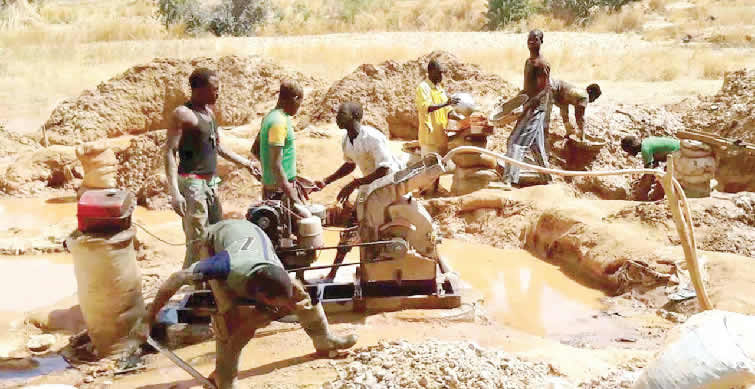International
World Bank Warns Of Impending Food Crisis In Northern Nigeria Amid Rising Insecurity

Eko Hot Blog reports that the World Bank has issued a cautionary statement, highlighting the imminent risk of severe food crises in seven states across the North-west and North-east regions of Nigeria.
The regions, including Borno, Adamawa, Kaduna, Katsina, Yobe, Sokoto, and Zamfara, face heightened food insecurity due to persistent insecurity, armed conflicts, and deteriorating livelihoods, according to the latest Food Security report by the World Bank.
- Kano Hisbah Arrests 52 Keke Riders Over Alleged Immoral Haircuts And Unlawful Activities
- Femi Otedola Expresses Joy As He Makes Forbes’ Africa Billionaires List After Seven Years
- Naval Chief Faces Allegations Of N8 Billion Fraud And Oil Theft – Coalition Urges Probe
The report emphasizes that these states are at “crisis food security levels,” underscoring the challenges posed by ongoing insecurity and armed conflicts, which have significantly impacted living standards in the region.
The situation is exacerbated by the volatile global context, particularly the war between Russia and Ukraine, contributing to food inflation in Nigeria and escalating prices of essential commodities.
The World Bank’s assessment aligns with the current struggles faced by the Nigerian government, which is grappling with the surge in food prices.
In response, the government has announced plans to cultivate 323,000 hectares of farmland for wheat, rice, maize, and cassava during the 2024 dry season farming.
While acknowledging the government’s efforts, the World Bank report signals a critical need for comprehensive measures to address the multifaceted challenges contributing to the impending food crisis.
The report aligns with previous warnings, including the Food and Agricultural Organisation’s prediction that around 5 million Nigerians are at risk of hunger in 2024.
The report extends its analysis to other West African countries, indicating that Burkina Faso, Chad, and Niger will also experience varying degrees of food insecurity.
Specific regions within northeastern Nigerian states, such as Abadam, Bama, Guzamala, Marte, are anticipated to face emergency food security levels, driven by limited household food stock, restricted market access, and challenges in receiving humanitarian aid.

The World Bank’s findings emphasize the urgency for coordinated efforts to address the root causes of food insecurity, from the local to the international level.
FUTHER READING:
- Kano Hisbah Arrests 52 Keke Riders Over Alleged Immoral Haircuts And Unlawful Activities
- Grand Return: NRC Set To Relaunch Lagos-Kano Express Train Service
- Opinion!!! Sanwo-Olu And The Pursuit Of A Social Market Economy (2)
As Nigeria grapples with rising inflation and hunger concerns, the global community must work collaboratively to mitigate the impact on vulnerable populations.
Click to watch our video of the week
Advertise or Publish a Story on EkoHot Blog:
Kindly contact us at [email protected]. Breaking stories should be sent to the above email and substantiated with pictorial evidence.
Citizen journalists will receive a token as data incentive.
Call or Whatsapp: 0803 561 7233, 0703 414 5611














